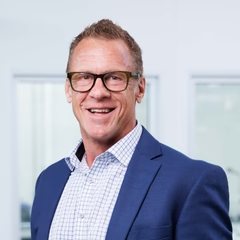If you’re struggling to find a job in 2025, you’re not alone. It’s not your imagination—it really is harder than it used to be. Applications feel like they vanish into black holes. Networking feels overwhelming. And the competition? It’s fierce. The job search landscape has shifted dramatically over the past few years, and the rules that once worked don’t always apply anymore.
So what’s changed—and why does it feel so difficult?
More People, Fewer Openings
We’re in a unique moment where a large number of experienced professionals are re-entering the workforce—some because of pandemic-era career pivots, others due to layoffs in tech, media, and finance. At the same time, companies are being more cautious about hiring. Many are tightening budgets, automating roles, or waiting out economic uncertainty.
This means more applicants are going after fewer positions. It’s not uncommon for a single mid-level job to attract hundreds (even thousands) of applications, making it incredibly difficult to stand out—even if you’re well-qualified.
The Rise of AI and ATS Filters
Another major hurdle is the technology itself. In 2025, most companies rely heavily on Applicant Tracking Systems (ATS) and AI-powered résumé screeners. These systems are designed to filter out “unqualified” candidates before a human ever sees a résumé. If your application isn’t keyword-optimized or formatted correctly, it may never make it past the first digital gatekeeper.
Even LinkedIn search results are now heavily influenced by activity levels, keyword placement, and engagement history. Being good at your job isn’t enough—you need to know how to be visible to the algorithm too.
The Skills Gap Isn’t Just Technical
A lot of job seekers assume they’re missing a hard skill—like Python, Excel, or Salesforce—but often, what employers are really hunting for are soft skills. Emotional intelligence. Adaptability. The ability to communicate across teams and lead through uncertainty.
But here’s the catch: soft skills are harder to prove on paper. They need to come through in your LinkedIn content, in the way you interview, and in the stories you tell about your work. This creates an extra layer of pressure, especially for candidates who don’t have coaching or mentorship in how to frame their value.
Networking Isn’t Optional Anymore
In previous decades, you could land a job by submitting a polished résumé and waiting. That approach doesn’t work anymore—not consistently, at least. Today, networking is not just helpful; it’s expected. And for many people, this is the hardest part.
Reaching out to strangers. Asking for referrals. Trying to stand out in inboxes already overflowing with messages. It’s uncomfortable—and yet, it’s one of the few ways to bypass the noise of the hiring process and connect with real decision-makers.
Mental Health and Burnout Are Real Factors
There’s an emotional toll to all of this. Rejection after rejection can erode even the most confident professional’s sense of self-worth. Job hunting has become a full-time job in itself, with little feedback and lots of silence. For many, the process is not just frustrating—it’s deeply discouraging.
Acknowledging this emotional weight is important. You’re not “doing it wrong.” You’re navigating a system that’s more complex, more automated, and more competitive than ever before.
So What Can You Do?
First, stop treating your résumé or LinkedIn profile as a static document. Optimize both using keywords from job listings. Show results, not just responsibilities. Make your headline and “About” section speak to the value you bring—not just the roles you’ve held.
Second, treat networking like a long-term practice—not a one-time ask. Comment on posts. Attend virtual meetups. Message people with genuine curiosity, not just requests. Give before you ask.
Third, shift your mindset. You are not just a job seeker. You are a problem-solver, a team-builder, a value-creator. Start communicating that clearly and confidently—on your profile, in your interviews, and in your outreach.
And finally, be kind to yourself. If it’s taking longer than expected, it’s not a personal failure. It’s a reflection of a rapidly changing landscape. Stay consistent. Stay visible. Stay human.
Looking for a roadmap to make your job search easier?
Check out our LinkedIn Optimization Kit for 2025—it’s packed with step-by-step guidance to help you show up, get seen, and land interviews faster.
-by Mark


